A successful job interview can be life changing. It can land you the job of your dreams and help create a life that you’ve always aspired to. Because of this, a lot of us take job interview preparation quite seriously and even consider our answers to the interviewer’s possible questions (check out our post on The 10 Most Common Job Interview Questions).
Picking the right outfit is another important aspect of getting ready for an interview. The right dress code can help you feel confident, make a good impression and lay a good foundation for your future in the company.
On the other hand, wearing the wrong thing won’t be helpful in any way and can lead to embarrassing and uncomfortable situations. Below, we will look into what not to wear for a job interview and how to avoid a bad interview outfit.
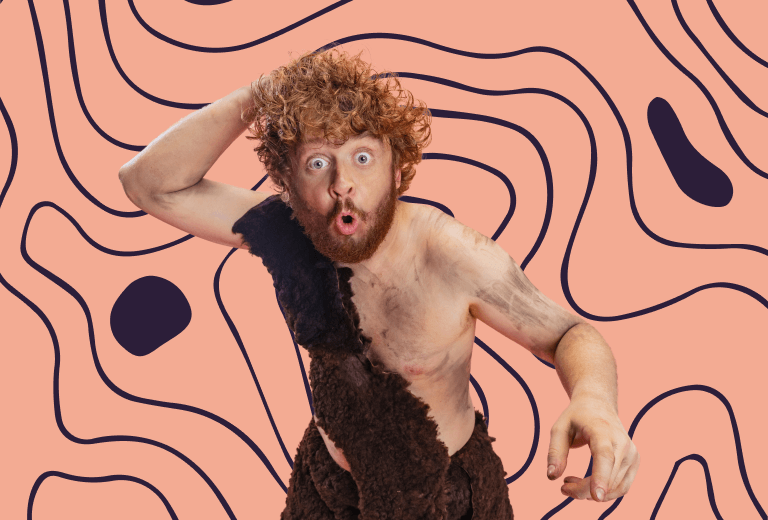
Table of Contents
The importance of your job interview attire
So, does it really matter what you wear to a job interview? Saying that what you wear doesn’t affect your skillset and expertise is definitely a valid point. However, the ability to evaluate a working situation, read the room and adjust to company culture and style are also valuable assets.
What you wear for an interview can be an important component of the first impression that you make on your employer. While you will surely have other chances to correct or complete this impression, why start on the wrong foot? Wearing the right attire can be the first step that will steer the whole interview process in the right direction.
Your clothing can also signal to the interviewer whether you are taking the position seriously and respect the company and its rules. If you get a chance, check the company’s website or social media page to get a rough idea of the dress code and company culture before the interview.
Finally, wearing the right thing can also make you feel more comfortable and relaxed during the interview process — which, all by itself, can be quite stressful. It’s a good idea to “try out” your interview outfit before you wear it to the actual interview to make sure you feel comfortable and relaxed. This can take at least some of the worry out of the day and help you focus on the conversation.
What to Wear to a Job Interview?
So, what are the best outfits for an interview? The answer to this question depends on where you are interviewing, what position you are interviewing for and whether the recruiter has hinted at or clearly stated the preferred dress code. In most cases, you will be choosing between wearing something business formal or business casual.
Business formal attire is more suitable for strict working environments. Examples of business attire are a full matching business suit for men and a dress skirt and jacket for a women’s interview outfit.
Business casual, on the other hand, is a more relaxed form of business wear. It means you don’t have to wear a suit and tie and can get away with a simple shirt or polo with chinos, jeans and a sweater, a dress and more. These are suitable for informal interviews or interviews at startups and smaller companies. Learn more about informal interviews in our Informal Interview. Complete Guide and Tips.
What NOT to wear to an interview?
So, now we are getting to the most interesting part — what to avoid when getting dressed for an interview. While there are some general no-nos to not wear on your first job interview, a lot of the dress code rules are still circumstantial. They depend to a large extent on the culture of the company you are applying for as well as the position you are interviewing to get.
For instance, smaller companies or young startups may have more relaxed dress code rules compared to large established corporations. Even in big companies, however, different rules may apply to different departments: if you have to work directly with company clients, you have a specific dress code to follow; if you are working in a cubicle or your own office most of the time, the rules may be more relaxed. Additionally, creative professions like writers, designers, software developers, etc. often have more “freedom” when it comes to what they wear to work.
With all of that said, we have been able to gather some of the most common interview dress code don’ts below — and we hope that will be helpful in your interview prep.
Don’t be overly casual
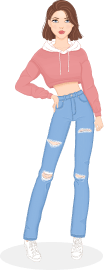
The general rule here is this: if you are not sure whether to go more or less formal, go more formal. In most cases, an interviewer won’t judge you for taking your meeting too seriously — on the other hand, they may judge you for being overly casual and taking the interview too lightly.
Don’t wear clothing that is too revealing

In everyday life, you may have a relaxed or “bold” style that often goes with showing quite a bit of skin, so it’s essential to get healthy skin in a natural way to feel confident and radiant. However, when it comes to interview attire, hemlines and necklines do matter and it’s best to avoid revealing elements in your look. This may include things like short skirts and shorts, see-through clothing, low-rise pants or low-cut blouses, etc.
Avoid oversize and sportswear
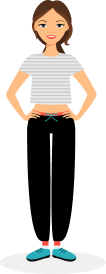
Clothing items like hoodies, yoga pants and baggy trousers have become indispensable in a lot of our wardrobes. While sportswear and oversize definitely offer a remarkable level of comfort, they are generally not the best choice for a job interview and may make you look less neat.
Don’t wear uncomfortable clothing
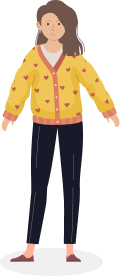
Let’s be honest: formal wear is rarely comfortable. Wearing a button-down shirt and dress trousers will probably never be as comfortable as jeans and a T-shirt. However, it is still worth investing time and money in a business formal or business casual outfit that makes you feel comfortable and relaxed. Wearing clothing that is too tight, itchy or causes you any other discomfort may make you feel uneasy during the interview and act as an unnecessary distraction.
Stay away from flashy colors — or match them with classic designs
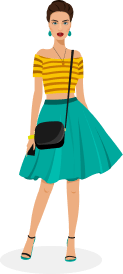
It’s always safer to wear calm subdued colors that won’t act as a distraction. Pastels, relaxing shades of blue and green, classic gray, whites and blacks are always a good choice. If you just can’t contain yourself and prefer to wear something bright, make sure to pair it with a classic design or simple print, which will act as a counterbalance.
Don’t ignore the details

Once you’ve selected your main outfit, take a look at the details like shoes and accessories. Dusty sneakers or flip-flops will instantly downgrade your outfit from business formal or casual to just casual. Wearing too many accessories (like jewelry) or accessories that are not appropriate for a business meeting (headware, glasses, etc.) also won’t compliment your look.
Go easy on the perfume/cologne/hair gel/etc
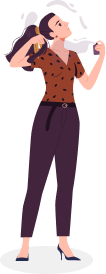
Avoid using anything that has a sharp or strong smell during the interview. The person you will be meeting may have allergies or they may simply not share your preferences when it comes to fragrance. As most interviews take place in small closed spaces, it’s best to avoid causing any discomfort to the interviewer and opt for cosmetic products with neutral or subdued smell.
Don’t overdo it with your personal style
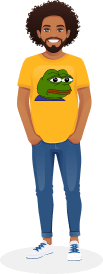
There is nothing wrong with letting your personality come through your clothing. In fact, in a lot of ways, this is what our clothing is for. However, during your first interview in a new company, it may be best to avoid clothing that is too “personalized”: like tops with memes or political statements, handmade jewelry, etc.
Keep it interesting
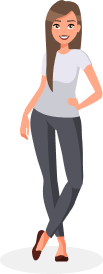
While there are definitely some limitations when it comes to business formal and business casual, there are also lots of ways to keep your interview attire modern and stylish. Avoid outdated fashion — and if you haven’t been part of the modern workforce for some time, take a look at social media and fashion publications for some ideas.
Summing things up
Knowing what NOT to wear for a job interview can help you avoid lots of unnecessary stress and discomfort. Making the right choice, on the other hand, can be a great first step towards a new career. Now that you’ve chosen the right outfit., make sure you ask the right questions — find some ideas in our guide on Job Interview Questions to Ask Your Potential Employer.